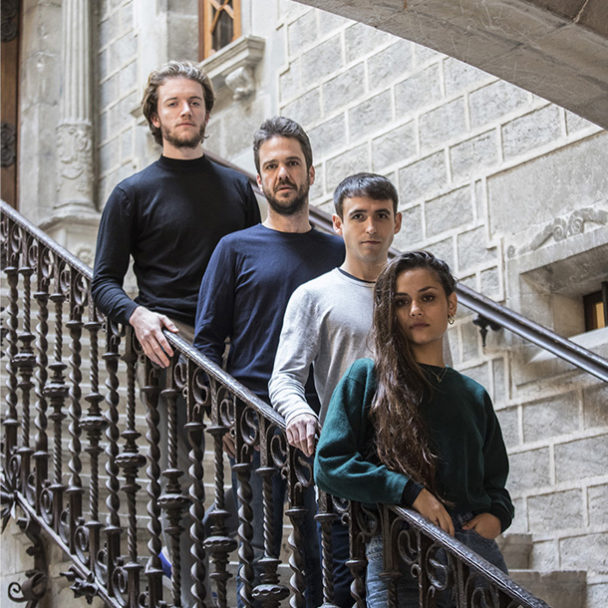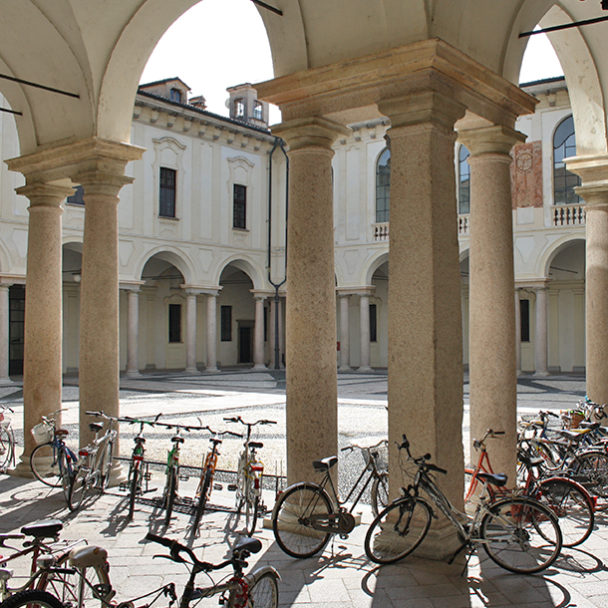Programme
Marc-Antoine Charpentier (1634-1704), Le Reniement de Saint-Pierre H424
Giacomo Carissimi (1605-1674), Jephté (Historia di Jephte)
Luigi Rossi (1597-1653), Cantate Ancor satio non sei ; Un peccator pentito « spargete sospiri »
This concert brings together the music of the Italian master of the oratorio, Giacomo Carissimi, and that of the Frenchman Marc-Antoine Charpentier: the latter’s sacred stories reflect the great works heard and studied in Rome with the master. Another composer whose influence on France is not negligible (he was invited twice by Mazarin), Luigi Rossi is one of the founders of the genre that took shape in the Roman oratories.
Carissimi’s Historia di Jephte is one of the first, if not the first masterpiece of the genre to have enjoyed real success. Written in 1649, this oratorio tells the Old Testament story of Jephthah, who, in exchange for a victory in his battle against the Ammonites, promises the Lord to sacrifice the first person he sees on his victorious return, a vow that will prove fatal to his young and only daughter. The biblical narrative, entrusted alternately to one or more singers, is interspersed with choruses and magnificent ariosos that comment on the action. The lament of Jephte’s daughter, with its echoing voices «Plorate colles, dolete montes» («Weep for the hills, grieve for the mountains») and the sublime final six-voice chorus «Plorate filii d’Israel» («Weep for the sons of Israel») sum up the beauty of this work.
This oratorio undoubtedly had a strong influence on Marc-Antoine Charpentier, who made a complete manuscript copy of it during his stay in Italy. This influence is particularly evident in the writing of his Reniement de Saint-Pierre. After the crowing of the cock, when Peter becomes aware of his betrayal, the choir concludes this sacred story in a climate of deep sadness with the words «Flevit amare» («He wept bitterly»), adorned with very Italian and expressive dissonances.
Luigi Rossi is one of the precursors of the genre. Along with the first narrative forms based on biblical episodes, he contributed greatly to the creation of a repertoire dedicated to the Roman oratories of the Catholic Reformation where «moral cantatas» were performed as part of spiritual exercises.
He is credited with several of these cantatas, probably conceived to be performed during Lent, curious meditations on the vanity of the world and exhortations to repentance, such as Ancor satio non sei or Spargete sospiri. Most of them are kept in the Vatican under titles evoking sin and penitence, and show a very innovative care for the illustration of words and affects. They have a very theatrical emotional charge, full of sensuality, which annihilates the contemporary distinction between profane and sacred genres.
Cast
Marie Théoleyre, Laura Rodrigues Lopes: sopranos
Clémence Faber: mezzosoprano
Marco Angioloni, Gabriel Belkheiri Garcia del Pozo: tenors
Ilia Mazurov: baryton
Mojca Jerman, Simone Pirri: violins
Pablo Tejedor Gutierrez bass: violin
Adrien Alix: violone
Marina Cabello del Castillo, Marc de la Linde: viola da gamba
Jeremy Nastasi: theorbo
Vincent Kibildis: harp
Alex Mastichiadis: organ
Santiago Gervasoni: harpsichord



